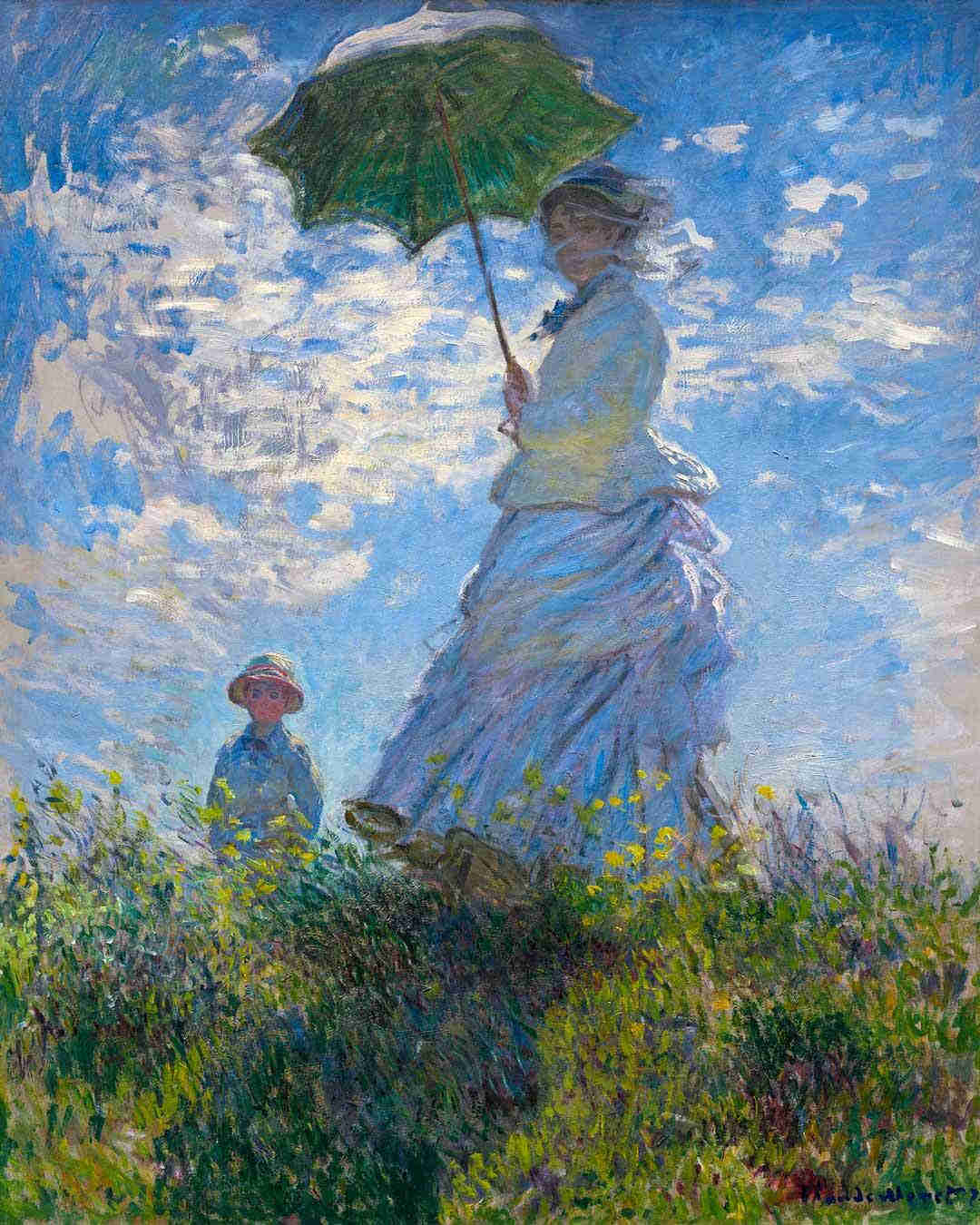By Holger Slowik (06.08.2021)
English Translation by Maarten Reumkens
Shimmering heat, balmy evenings, thunderstorms… Summer has many faces, tones, moods and sounds. In this Stretta Journal article about the sounds of summer, Holger Slowik presents his selection of summer music favourites.

When it comes to portraying the seasons, the four violin concertos The Four Seasons by Antonio Vivaldi are the classics.
Each concerto is based on a poem picturing one of the four seasons, with all its idiosyncrasies. Vivaldi composed music to accompany each line of the poem. In some places, detailed notes can still be found in the score, showing us Vivaldi’s intentions for specific phrases.
So what kind of a summer does Vivaldi paint for us? Here, summer is the “Hard Season” (“dura Stagion”), where the blazing sun forces people, animals and plants to languish in the heat. The composer creates this atmosphere by using short repeating, circling motifs, constantly interrupted by pauses, and interspersed with isolated birdsong from the cuckoo, turtle dove and goldfinch.
The “mild southerly winds” (“Zeffiretti dolci”) barely have a chance to ease the heat, before being rudely interrupted by a violent northerly wind. A shepherd, roused from his slumber by the wind, and tormented by insects, weeps not only “for fear of the approaching thunderstorm“ (“perchè sospesa teme fiera Borasca”), but also “for his fate” (“e ‘l suo destino”). A thunderstorm breaks out during the turbulent final movement, “and giant hailstones destroy the ripe stalks of corn” (“e grandinoso Tronca il capo alle spiche, e à grani altieri”). Vivaldi’s summer may end in natural disaster – but his autumn opens with a peasant’s feast. Perhaps it was all just the sad shepherd’s dream?
We use YouTube to embed video content. This Google service has its own cookies and may collect data about your activity. You can find more information in the data protection declaration of the provider. We need your consent to display YouTube videos:
Show YouTube content“Summertime” by George Gershwin, from his opera Porgy and Bess (1935): This lullaby is one of the most covered songs of all time, and exists in countless different styles and versions.
On a summer evening, the inhabitants of Catfish Row shake their sorrows through music and dance. Clara, standing on the porch, lulls her child to sleep. She paints the summer, and the child’s future in glowing colours (“Summertime, And the livin‘ is easy…”; “Oh, Your daddy’s rich, And your mamma’s good lookin‘”), up to that glorious morning when the child will rise above misery:
“One of these mornings
You’re going to rise up singing
Then you’ll spread your wings
And you’ll take to the sky”
We use YouTube to embed video content. This Google service has its own cookies and may collect data about your activity. You can find more information in the data protection declaration of the provider. We need your consent to display YouTube videos:
Show YouTube contentIt would seem for some, that summer heat and daydreaming go hand in hand. There are few pieces in the classical repertoire where dozing off in the shade is portrayed more vividly than in Claude Debussy's orchestral work Prélude à l’après-midi d’un faune, the “Prelude to the Afternoon of a Faun”. This key impressionist piece is based on a rather suggestive poem by Stéphane Mallarmé, portraying the reveries of a faun, an ancient mythical creature.
Here, Debussy chooses to use constantly repeating motives to illustrate the summer heat in a way similar to Vivaldi in his Four Seasons, as we saw earlier.
We use YouTube to embed video content. This Google service has its own cookies and may collect data about your activity. You can find more information in the data protection declaration of the provider. We need your consent to display YouTube videos:
Show YouTube contentShakespeare's A Midsummer Night's Dream is driven by mythical creatures of a completely different kind. Here, there is also a type of lullaby, but of a completely different nature to “Summertime”: After all the insects and creatures have been driven away, the nightingale is invited to sing: “Nachtigall mit Melodei, sing‘ in unser Eiapopei‘.” and the elves accompany the nightingale’s song with their music, imbueing it with a nimble, summery lightness.
We use YouTube to embed video content. This Google service has its own cookies and may collect data about your activity. You can find more information in the data protection declaration of the provider. We need your consent to display YouTube videos:
Show YouTube contentThe freshness of a morning holds a unique joy in summer. It’s a great time to clear one’s mind before the midday heat slows everything down. This is what the lovesick singer feels in Dichterliebe by Robert Schumann, based on poems by Heinrich Heine. He seeks distraction from his heartache during a morning walk.
“Am leuchtenden Sommermorgen
Geh‘ ich im Garten herum”
Dreams and reality start to mix:
“Es flüstern und sprechen die Blumen,
Ich aber wandle stumm.”
Not only does he hear flowers talking amongst themselves, they speak to him and try to comfort him:
“Es flüstern und sprechen die Blumen,
Und schau’n mitleidig mich an:
Sei unsrer Schwester nicht böse,
Du trauriger blasser Mann!” – Translation
Are the flowers really speaking? Is it all but a summer’s dream? Schumann underpins the whole song with a constant falling piano motive that leads into a lengthy postlude. Summer as a time to pause and reflect. Nowhere is this expressed better than in this wonderful romantic art song.
We use YouTube to embed video content. This Google service has its own cookies and may collect data about your activity. You can find more information in the data protection declaration of the provider. We need your consent to display YouTube videos:
Show YouTube contentNature comes into its own in Hermann Hesses poem September, which portrays the final moments of summer from a more autumnal perspective. The rain is now cool, and the first leaves are falling, summer is not in full bloom anymore, and can but watch: “Summer smiles astonished and languidly into the dying garden dream.”
Nobody seems more suited to paint the muted colours of a waning summer than Richard Strauss, a truly virtuosic orchestrator. In the song “September”, part of Strauss' Four Last Songs, the mature style of the 84 year-old composer and the poet’s mood of farewell meet perfectly to create a beautiful, autumnal synthesis.
“Lange noch bei den Rosen bleibt er stehen.” (“But still, by the roses, It pauses and longs for peace.”) Here, the singer and the orchestra bloom one last time, showing their brightest colours, before summer finally says a peaceful goodbye: “Langsam tut er die großen, müdgewordenen Augen zu.” (“And slowly closes its large now tired, worn eyes”)
We use YouTube to embed video content. This Google service has its own cookies and may collect data about your activity. You can find more information in the data protection declaration of the provider. We need your consent to display YouTube videos:
Show YouTube contentAll works mentioned in this post can be found in the following Spotify-Playlist:

There is a separate Stretta website for the country Worldwide. If your order is to be delivered to this country, you can switch, so that delivery times and shipping conditions are displayed correctly. Your shopping cart and your customer account will remain the same.